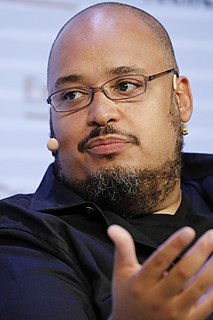A Quote by Sam Altman
The most common post YC failure case for the companies we fund, is they're incredibly focussed during YC on their company... and after they start doing a lot of other things. They advise companies, they go to conferences, whatever.
Related Quotes
When we first started our internet company, 'China Pages', in 1995, and we were just making home pages for a lot of Chinese companies. We went to the big owners, the big companies, and they didn't want to do it. We go to state-owned companies, and they didn't want to do it. Only the small and medium companies really want to do it.
There are companies that are good at improving what they're already doing. There are companies that are good at extending what they're doing. And finally there are companies that are good at innovation. Every large company has to be able to do all three - improve, extend, and innovate - simultaneously.
Some years ago one oil company bought a fertilizer company, and every other major oil company practically ran out and bought a fertilizer company. And there was no more damned reason for all these oil companies to buy fertilizer companies, but they didn't know exactly what to do, and if Exxon was doing it, it was good enough for Mobil and vice versa.





























